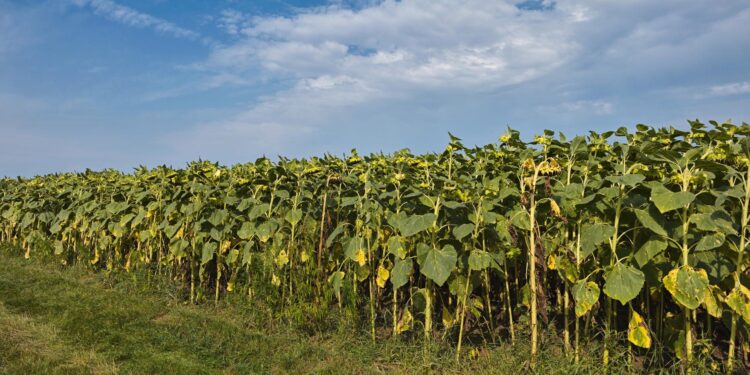Hungary’s agricultural sector and rural communities are set to receive a substantial financial boost as record funding has been announced by the government. The latest investment aims to modernize farming practices, enhance infrastructure, and improve living standards across Hungary’s countryside. Officials emphasize that this unprecedented support will not only strengthen agricultural productivity but also foster sustainable development in rural regions, aligning with the country’s broader economic and social goals.
Record Funding Transforms Agricultural Infrastructure and Boosts Productivity
Hungary’s agricultural sector is undergoing a significant transformation thanks to unprecedented investment aimed at modernizing rural infrastructure. This infusion of capital is set to enhance irrigation systems, upgrade farm machinery, and expand storage facilities, directly addressing long-standing challenges faced by farmers across the country. As a result, not only will crop yields increase, but the quality and sustainability of agricultural production are expected to improve markedly, reinforcing Hungary’s position as a leading food producer in the region.
Key areas benefiting from the funding include:
- Advanced irrigation networks designed to optimize water use and reduce waste
- State-of-the-art machinery to boost efficiency and reduce operational costs
- Enhanced rural storage facilities to minimize post-harvest losses and improve supply chain reliability
- Renewable energy projects integrated into farms to promote sustainability
The Hungarian government’s commitment is also reflected in the following funding distribution across critical sectors:
| Sector | Funding Allocation (Billion HUF) | Expected Productivity Increase |
|---|---|---|
| Irrigation | 15 | 25% |
| Machinery Upgrades | 18 | 30% |
| Storage Facilities | 10 | 15% |
| Renewable Energy | 7 | 10% |
Empowering Rural Communities Through Targeted Development Programs
In recent years, a strategic focus on empowering rural communities has transformed the landscape of Hungarian agriculture. By channeling record-breaking financial resources into targeted development programs, the government has fostered local entrepreneurship and enhanced infrastructure, creating a ripple effect that strengthens economic resilience across the countryside. Support initiatives range from modernizing irrigation systems to upgrading transport networks, ensuring that farmers and small businesses can thrive in a competitive market.
Key areas addressed through these programs include:
- Access to affordable loans and subsidies for young farmers
- Training and education in sustainable agricultural techniques
- Development of renewable energy projects tailored for rural needs
- Improvement of digital connectivity to bridge the urban-rural gap
| Program | Funding (‚ā¨ Million) | Impact Area | |
|---|---|---|---|
| Young Farmers Initiative | 120 | Entrepreneurship | |
| Rural Digital Access | 80 | Connectivity | |
| Sustainable Farming Education | 60 | Training | |
| Renewable Energy Solutions | Renewable Energy Solutions | 90 | Energy |
| Program | Funding (‚ā¨ Million) | Impact Area |
|---|---|---|
| Young Farmers Initiative | 120 | Entrepreneurship |
| Rural Digital Access | 80 | Connectivity |
| Sustainable Farming Education | 60 | Training |
| Renewable Energy Solutions | 90 | Energy |
Would you like me to help with anything
Strategic Recommendations for Sustainable Growth and Long-Term Resilience
To ensure the recent funding translates into lasting benefits, a multipronged approach targeting innovation, infrastructure, and education is essential. Investing in advanced agricultural technologies such as precision farming, smart irrigation, and drone monitoring can significantly raise productivity while minimizing environmental impact. Simultaneously, modernizing rural infrastructure-ranging from transportation networks to digital connectivity-will not only improve market access for farmers but also attract younger generations to stay and thrive in these communities.
Equipping local farmers and stakeholders with targeted training programs is equally crucial to adapt to evolving market trends and climate challenges. The table below outlines core focus areas integral to building resilience and sustainable growth:
| Strategic Focus | Key Actions | Expected Outcomes |
|---|---|---|
| Technological Innovation | Adopt precision agriculture tools | Increased yield & resource efficiency |
| Infrastructure Development | Upgrade roads and expand broadband | Improved market connectivity |
| Education & Training | Offer workshops on sustainable practices | Empowered farmers & skilled workforce |
| Environmental Stewardship | Support organic and regenerative methods | Long-term soil health and biodiversity |
Concluding Remarks
As Hungary ushers in a new era of agricultural investment, the record funding allocations signal a decisive commitment to revitalizing rural communities and bolstering the country’s food production capabilities. This financial boost not only aims to enhance the competitiveness of Hungarian farmers but also strives to secure sustainable growth across the agricultural sector. With these measures in place, Hungary is poised to strengthen its rural economy and ensure long-term prosperity for its agricultural stakeholders.














